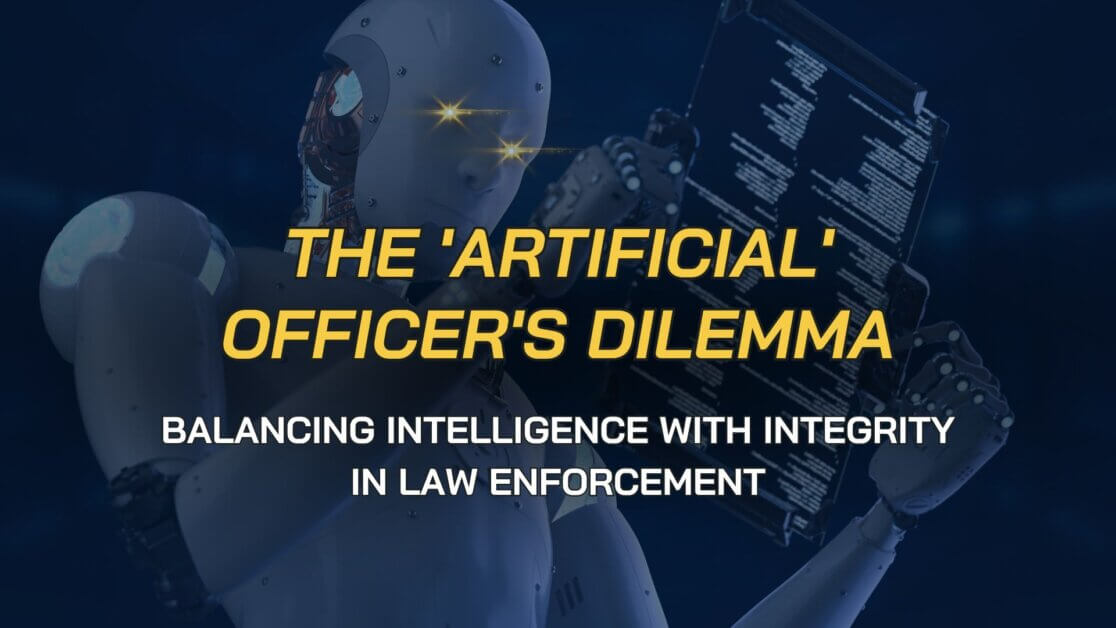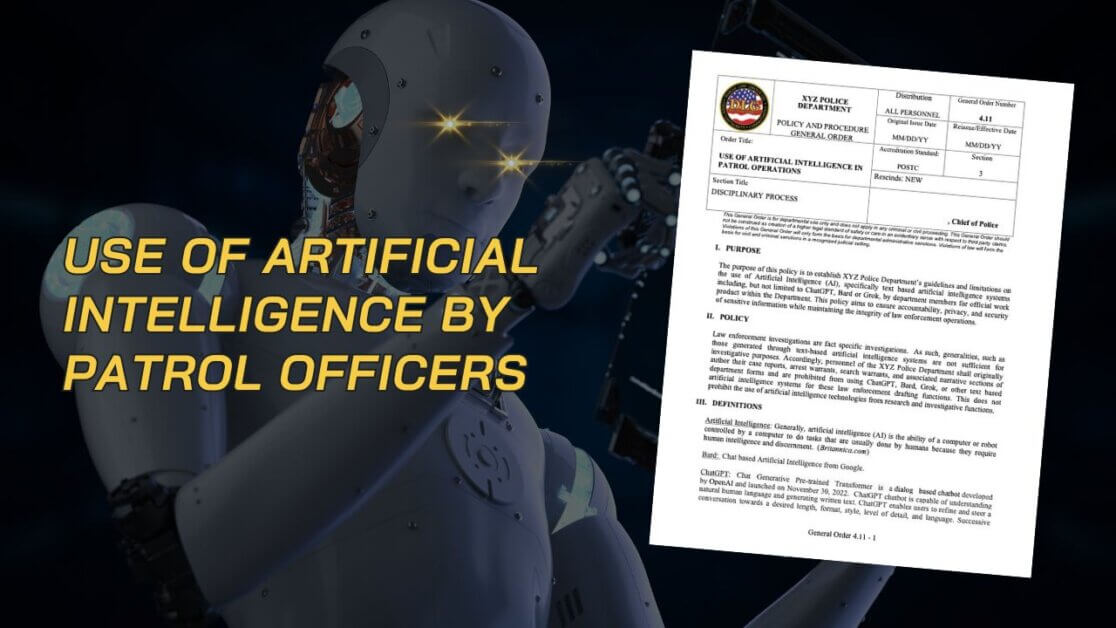The Eight Circuit’s recent decision in Murphy v. Schmitt highlights the fine balance between the First Amendment right to free speech, retaliatory claims, unlawful detention, and the discretionary powers of law enforcement officers. The central conflict in this case stems from a contentious encounter between Officer Michael Schmitt of Sunrise Beach and a local pedestrian, Mason Murphy.
Before delving into the details of Murphy v. Schmitt, it is relevant to acknowledge that the United States Supreme Court has recently granted certiorari in the case of Gonzalez v. Trevino, a case that similarly explores the scope of First Amendment protections, particularly as they pertain to retaliatory arrests. The Supreme Court’s decision to hear Gonzalez v. Trevino underscores the ongoing evolution and refinement of First Amendment retaliation claims, and law enforcement officers are advised to stay attuned to these developments, as they will undoubtedly influence and shape the legal landscape in this area.
Summary
In 2021, Officer Michael Schmitt was patrolling the highway in Sunrise Beach, Missouri. While on patrol, the officer encountered Mason Murphy, a young man who was traveling on foot, walking in the same direction as the traffic. A Missouri statute requires pedestrians to “walk only on the left side of the roadway or its shoulder facing traffic which may be from the opposite direction.” Officer Schmitt pulled to the side of the road and approached Murphy, asking him to identify himself. Murphy refused, sparking a nine-minute heated argument between the two men. Throughout the altercation, Murphy was not reluctant to challenge the basis for his arrest, a question that Officer Schmitt firmly chose not to address.
As the confrontation escalated, Officer Schmitt proceeded to detain Murphy, swiftly handcuffing him before securing him in the back of his patrol car. During the ensuing drive to the station, Murphy again persistently questioned the rationale behind his detainment, to which the Officer finally responded that the arrest was for “failure to identify.” Body-worn camera footage captured a subsequent phone conversation Officer Schmitt had, where he sought guidance on possible charges against Murphy while expressing his irritation with Murphy’s reluctance to identify himself and his insistent criticisms of the Officer’s approach.
While the situation ended with Murphy’s release after two hours, this arrest would not only bring into question the discretionary powers of law enforcement but would also provoke discussions on the boundaries of First Amendment rights.
Murphy subsequently filed a lawsuit against Officer Schmitt, alleging unlawful detention and First Amendment retaliation. The crux of Murphy’s argument was that his First Amendment right to verbally challenge a police officer was infringed upon by what seemed to be a clearly retaliatory arrest, lacking any substantial probable cause. The district court, however, granted Officer Schmitt’s motion to dismiss on the grounds of qualified immunity, asserting that probable cause for the arrest existed.
Unwilling to accept the outcome of the lower court, Murphy appealed to the Eighth Circuit seeking review for what he believed was a case of First Amendment retaliation.
Analysis
Hearing the case on appeal, the Eighth Circuit affirmed the lower court’s decision, finding that Officer Schmitt was entitled to qualified immunity.
The Eighth Circuit leaned on the Greenman v. Jessen case as a precedent, which outlined a three-part framework for establishing a First Amendment retaliation claim. This framework necessitates the plaintiff to have engaged in a protected activity, been subject to adverse action by a government official that would chill a person of ordinary firmness from continuing the activity, and that the adverse action was motivated, at least in part, by the exercise of the protected activity. The Supreme Court’s decision in Nieves v. Bartlett highlights a critical principle relevant to this analysis, noting that the existence of probable cause typically invalidates a retaliatory arrest claim unless the plaintiff presents objective evidence to the contrary.
It’s crucial to recall that the Court in Nieves carved out a narrow exception, stating that the no-probable-cause requirement should not apply when a plaintiff presents objective evidence that he was arrested when otherwise similarly situated individuals not engaged in the same sort of protected speech had not been.
For law enforcement, this is significant because the objective standard implies that the arresting officer’s individual motivations and statements do not factor into the assessment. This standard ensures that the focus remains on the objective evidence rather than the subjective intent of the law enforcement officer involved.
On review, both parties acknowledged that Officer Schmitt was justified in arresting Murphy based on a clear violation of the Missouri Statute. Nonetheless, Murphy contended that his case fell within the exception outlined in Nieves, drawing similarities between his refusal to identify himself and the hypothetical scenario in Nieves, where incidents of jaywalking seldom result in arrests.
The Court, however, remained unconvinced by Murphy’s analogy. The Court found the two scenarios distinguishable, noting that its review of the totality of the circumstances of Murphy’s case differed significantly from the hypothetical jaywalking situation in Nieves. Relying on “experience and common sense,” the court found Murphy’s allegations inadequate to establish that violations of this Missouri Statute are routinely overlooked and consistently dismissed at the officers’ discretion. The Court concluded that, in contrast to the jaywalking hypothetical in Nieves, Murphy’s case did not meet the threshold of commonly overlooked statutory violations.
Furthermore, the court rejected Murphy’s argument that Officer Schmitt’s clear retaliatory intent should lead to a finding of retaliation. Echoing the Supreme Court’s stance in Nieves, the Eighth Circuit emphasized that an officer’s individual, subjective mindset is not a determining factor when assessing the legality of an arrest.
Murphy v. Schmitt underscores the necessity for law enforcement officers to be cognizant of the boundaries of First Amendment retaliation claims. The principle established in Nieves, that probable cause generally negates a retaliatory arrest claim, serves as a vital shield for officers in their daily interactions. However, it’s imperative to note the exception to this rule, as officers must always strive to operate within the confines of objective assessment and actions.
The ruling also highlights the necessity for law enforcement officers to uniformly enforce state statutes, with the pedestrian movement statute in Missouri serving as a pertinent example. Consistent enforcement is vital in preventing claims of discrepancy or selective application, thereby upholding the principles of fairness and consistency that are fundamental to our roles as guardians of the community and the law.
Lastly, remember that the law in these circumstances supports actions that are grounded in objectivity and reasonableness. Law enforcement’s primary objective should be to perform our duties diligently, free from the apprehension of potential litigation, and always guided by the objective standards that shape and govern our actions in the field.
Murphy v. Schmitt No. 22-1726 (8th Cir. Sept. 6, 2023)



